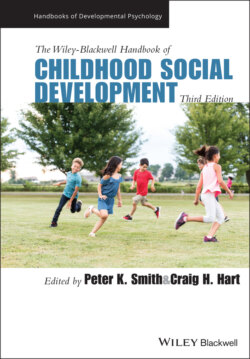Читать книгу The Wiley-Blackwell Handbook of Childhood Social Development - Группа авторов - Страница 118
Conclusion
ОглавлениеAfter introducing the core components of ecological perspectives, we have examined how these can be used to understand social development. Focused examples of parenting and attachment, and bullying were studied to illustrate the application of ecological perspectives to domains of social development. The implications for both research and practice arising from adopting an ecological lens have also been considered. In conclusion, it is argued that there is genuine value in adopting ecological perspectives for social development and we run the risk of neglecting the crucial role of context otherwise. The world is constantly changing, and ecological perspectives can help to make sense of both the similarities and differences that we see between people and understand the way that individual and social circumstances influence who people are, who they become, and the complex processes involved. They also provide a framework for interpreting difficulties in social development that can be used in professional practice with children and young people.
